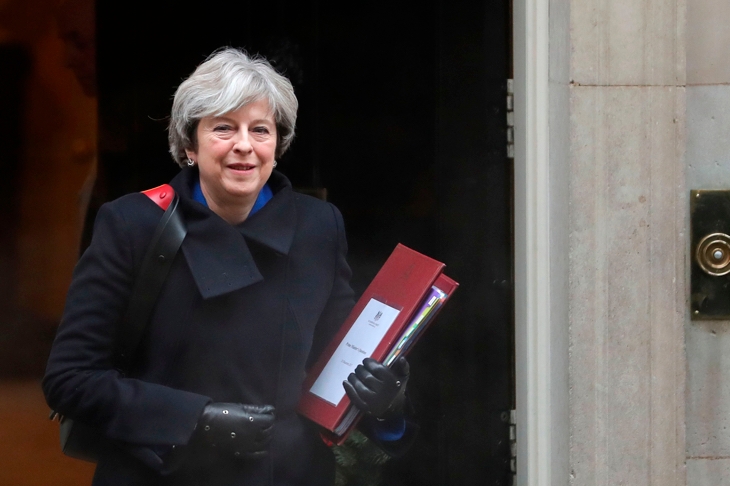Michel Barnier’s Brexit transition deal offer – under which Britain will continue to pay into the EU’s budget and have no say on rules – has not gone down well with some Brexiteers. The Daily Telegraph says that this suggestion means that the date of when Brexit will happen has effectively been pushed back until December 31st 2020. The paper says that it was right for Theresa May to initially lay out a request for a two-year transition deal during her Florence speech last year. But since the PM made that speech, Britain has been too ‘meek’ in obeying the EU and allowing Brussels to ‘call all the shots’. This makes it no surprise that ‘Brexit-supporting Conservatives’ are getting jittery in the wake of Barnier’s proposal. After all, they realise that there is a majority in Parliament for a soft Brexit, and if ‘they do not like it, they will have to act soon’. Of course, acting now is not without risk: they could end up ‘destabilising the Government and may not get Brexit at all’. ‘Those calling on the Prime Minister to adopt a tougher line need to be mindful of the parliamentary arithmetic’, argues the Telegraph, and they must tread carefully. So what should the next step for worried Brexiteers be? And what should ministers do to appease those worried about where Brexit talks are heading? The Telegraph suggests that ‘above all, the government needs to make it clear that transition is a temporary state of affairs’. Only this will give concerned Brexiteers the reassurance they need.
But the Sun says it ‘will not join in the eurosceptics’ rage over the Brexit transition’. The very nature of this period is that it is ‘short’ and ‘limited’ and it also has the huge advantage of ‘buying our firms more time to prepare’. It’s not ‘ideal’, the paper admits. But in order to ‘avoid greater economic fallout’ when Brexit happens, it at least ‘seems logical’ to opt for a transition period. But the paper says it is still vital that the PM ‘resists at all costs any new EU laws being imposed’ on Britain. Such rules could ‘wreck our competitiveness post-Brexit’, the paper warns, with the Sun going on to say that it is concerned that May might be ‘preparing to tie us into EU trading rules long after the transition’. This outcome ‘will be far from the independence 17.4million voted for’, says the Sun, which concludes its editorial with a warning: the government must not allow the ‘major prize from Brexit’ – allowing Britain to secure ‘deals with other great global trading powers – to ‘slip through its fingers’.
As the EU set out its transition deal proposal yesterday, the Tory party ‘continued to be preoccupied by a stormy doctrinal argument about real and imagined threats’ from Brexit, says the Guardian. ‘At any moment’, says the paper, the row ‘within the Tory party at Westminster’ ‘might spill out into a full-scale brawl’. This climate of uncertainty means that the ‘transition question is as fraught as phase one of the Brexit talks’. Initially, all sides saw that a transition was ‘indispensable to lay the ground’ for Brexit. ‘Hardline Brexiteers’ agreed until recently, when, the Guardian says, they ditched the pretence they were interested in Britain’s ‘best interests’ and have now prioritised their fears about a ‘soft Brexit’ above all else. This mindset is ‘luring them into recklessness’ and making it a very real prospect that they will soon call for May’s head. This increasing uncertain in the Tory ranks makes it all the more vital that Labour seizes its moment, argues the paper. ‘The situation is ready-made for Labour to articulate an alternative approach that speaks for Britain’s interests. That alternative has been too long absent; it has never been more needed,’ concludes the Guardian.







Comments